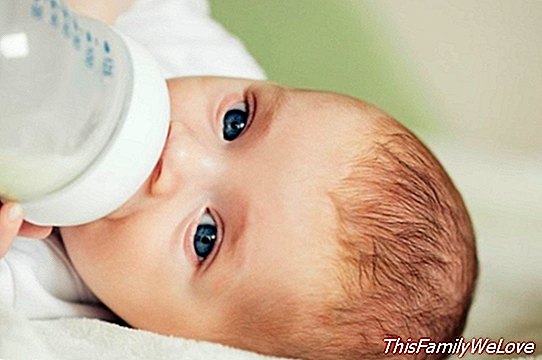Reasons to use bottle sterilizers

The hygiene It is an essential virtue that must be practiced in all areas of life: of course in the bathroom, but also with everyday objects, especiallyThese objects are the way to feed a baby. Therefore, in this article we explain why bottle sterilizers are so important.
Babies are very delicate beings that they need exquisite care, therefore, if you give the bottle to your baby you must sterilize it beforehand, thus preventing certain germs that escape even the most careful washing from reaching the newborn. An exquisite care that, of course, is extrapolated to everything that surrounds babies: the hygiene must be impeccable.
When to use the bottle sterilizer
Experts recommend using the bottle sterilizer up to six months of the baby. The mode of use differs from one to another and varies according to the customs of each house: everyone agrees that, before being used for the first time, both the nipple and the bottle should be sterilized.
After this first use, there are those who think that it is no longer necessary to re-sterilize the bottle, while others encourage it to use it. Of course, we must remember that the sterilizer does not clean, but disinfects, so you should usee always after cleaning them in order to eliminate the germs that may have remained in it. In this way the chances of the child suffering some diseases are reduced that can carry such germs.
Buy a sterilizer
When buying a sterilizer Not only the price is a factor to consider: First you have to assess how much you need us. That is, if you are preparing everything you need before your baby arrives, wait, because if the baby takes breast milk this product will only take up valuable space in your kitchen. It will be when you see that you use the bottle (because you can not or want to breastfeed or follow a "mixed style") when you look the best sterilizer.
As to buy cribs or strollers, you have to pay attention the sterilizer complies with current European regulations, This is a guarantee of product quality and tells us that the device has passed tests that ensure it is safe and resistant.
Types of bottle sterilizers
Cold sterilizer. Its operation is based on the dissolution of some pills whose chemical principle is effective against bacteria and, in turn, does not present risks for children. Normally this class of sterilizers are Simple to use and economical in their purchase and use: they do not need electric current for its operation. Of course, they usually need more time to complete the disinfection.
Microwave sterilizers. The operation on this occasion is much shorter: in ten minutes the bottles will be ready, so it's about fastest method, as well as practical, light and cheap. They are also most used for their comfort: the container is placed directly in the microwave and kills the germs with steam.
Electric sterilizers. Its way of killing bacteria is also based on water vapor, being effective sterilizers, fast (about 15 minutes) and simpleuse, but with a higher price. It is an electrical element in which water is placed and through a plate, it creates steam that sterilizes the bottles.
Angela R. Bonachera




